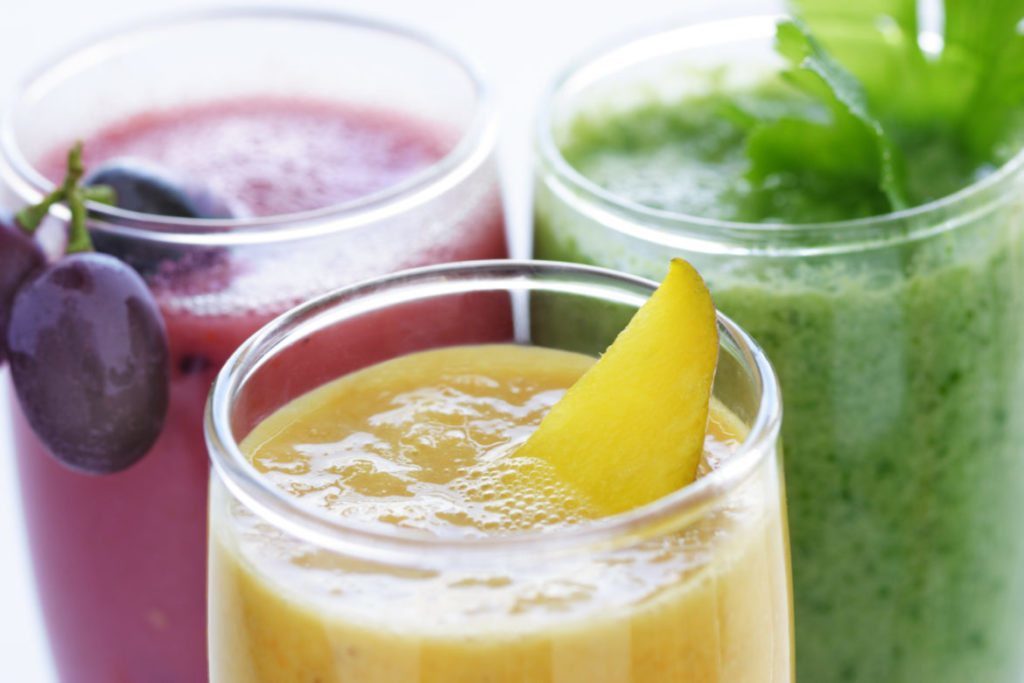10 Foods To Eat When You Have A Cold

Cold and flu season has officially arrived now that the crisp fall air has replaced summer’s swelter. Despite popular misconceptions, people don’t tend to get sick more frequently in the winter than summer simply because the weather has turned colder, or at least not entirely.
People have a tendency to spend more time in close, poorly ventilated quarters during the colder months of the year, which allows germs to travel easily from one host to another. This type of germ swap meet happens frequently in small offices and classrooms, especially those filled with young children. So when you start to feel the inevitable cough, sneeze, and sniffle of the season, remember the old age to “feed a cold,” and keep these 10 foods in mind when dealing with an illness.
Popsicles
The right type of frozen popsicles can offer a cure to many of the things that ail you when suffering from a cold or flu. When dealing with a dry, sore, swollen, or prickly throat, a popsicle can help soothe, while also keeping you hydrated, an important element when dealing with the flu. For a truly outstanding option, look for popsicles made from 100 percent fruit juice, which contain helpful nutrients such as vitamin C that can help shorten the duration of your illness.
Try to find sugar-free popsicles if possible. Your Newberg dentist Dr. Jennifer McLeod wants patients to avoid the dangers to their oral health that comes with eating too much sugar. Sugar-free popsicles will still help to soothe your sore throat without providing dangerous plaque the fuel it needs to damage the health of your teeth.
Turkey Sandwich
Your body needs fuel to fight off an illness, and even though you may not feel like eating much, a turkey sandwich is an excellent option. Turkey is a wonderful source of lean protein, which provides your body the fuel it needs with very few grams of fat. Try making your sandwich with whole grain bread. White breads have a tendency to linger in the mouth longer than whole grains, making them a prime food source for plaque.
Vegetable Juice
A quick and efficient way to load up on valuable antioxidants that help to boost the immune system? An eight-ounce glass of low-sodium vegetable juice! It works just like a sippable salad without the need to mix anything together. And unlike fruit juice, which typically contains high amounts of sugar, vegetable juice offers a great low-sugar alternative.
Chicken Soup
A classic cold remedy, chicken soup does more than just help to nourish and hydrate. As some recent research indicates, it may also possess mild anti-inflammatory effects that help to shorten the duration of an illness. Studies have shown that a hot bowl of chicken soup can help improve the ability of the small hair-like parts of the nasal passage, known as cilia, to protect the body from viruses and bacteria.
Garlic
When suffering from a cold, you lose much of your ability to taste the things you eat and drink. Adding a little garlic to what you eat can not only improve how it tastes, research has shown garlic to possess immune stimulating and antimicrobial properties that provide additional relief from congestion.
Ginger
Long considered a home remedy for nausea and stomachaches, research has also shown that ginger can help to fight inflammation. Even when not fighting an illness, ginger’s anti-inflammatory properties can also help lower your risk of gum disease.
Hot Tea
Black, green, and oolong teas are loaded with antioxidants that fight off disease, and breathing in the steam from a cup of piping hot tea can also help to ease congestion. Adding a squeeze of lemon to your tea can also help aid a sore throat.
Banana
Great for individuals suffering from viruses that cause the body to eject whatever you’ve recently eaten, bananas are easy on the stomach and can help provide you with nourishment when nothing else seems willing to stay down.
Toast
Perhaps not the most exciting option to dine on for dinner, toast and crackers, just like bananas, are great go-to options when you don’t feel like eating, but need some sustenance.
Meal Replacement Drinks
A last resort for individuals suffering from extreme bouts of the flu who can’t keep down any food, meal replacement drinks, like those commonly used by dieters, offer plenty of calories and nutrients your body needs when fighting off an illness. Look for brands that contain a minimum of six grams of protein, low levels of sugar, and that are lactose-free.
If you have any questions about which foods present the biggest risks to your oral health feel free to ask Newberg dentist Dr. Jennifer McLeod during your next appointment.
